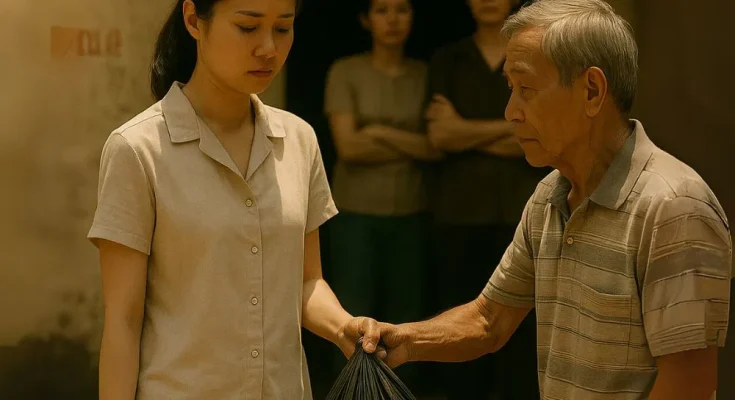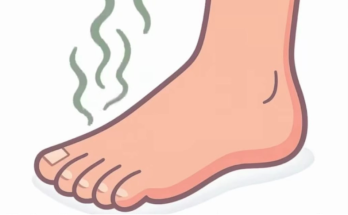The midday sun blazed over the quiet suburban street. Inside the yard, tension crackled like static.
“Every extra day you stay here just makes this house dirtier. Leave already!” sneered Samantha, my sister-in-law, her arms crossed tightly.
Beside her, my mother-in-law, Mrs. Helen, nodded sharply. “A woman who can’t even give us children has no place here. Pack your things and go.”
I stood with my worn-out suitcase in hand, swallowing back tears. All morning, I had endured the words “useless,” “poor,” “a burden.” My husband sat on the porch scrolling his phone, detached, as though none of it concerned him.
Without replying, I lifted my bag and headed toward the gate. Each step felt heavier than the suitcase I carried. The rusty hinge groaned as I pulled it open—like even the house itself was rejecting me.
Then I heard footsteps behind me. My father-in-law, Mr. Robert, caught up, breathing slightly harder than usual. He was a quiet, kind man, always overlooked in that household.
“Since you’re leaving anyway,” he said softly, handing me a black plastic bag, “take this trash out for me.”
At first, I froze. The humiliation stung—one last insult, perhaps. But his eyes held something different, almost pleading. I nodded, forced a smile, and walked out.
At the corner of the street, I stopped under a tree and looked at the bag. It felt too light, too clean. Curiosity overtook me. With trembling hands, I untied the knot.
Inside wasn’t trash. It was money—neatly stacked bills bound with a rubber band. On top lay a folded note.
The handwriting was shaky but careful:
Tears blurred the last line. I clutched the note to my chest. In that moment, I realized—while some voices in that house tore me down, one quiet voice believed in me enough to give me freedom.
Two weeks later, I rented a tiny room near the bus station. It was hot and noisy, but it was mine. I found work in a small diner, scrubbing floors and washing dishes. Each morning at five, I reheated soup and tied up trash bags. Every time, I thought of Mr. Robert’s “trash bag” that wasn’t trash at all—it was hope disguised.
Eventually, I saved enough to start selling sticky rice near the bus stop. The first batch burned, but the second turned out perfect. Soon, the aroma of fried shallots and mung beans attracted workers, students, and drivers. My stall became a little corner of comfort.
Beside it, I always kept a small trash bin lined with a fresh black bag. Tying it off each day reminded me that sometimes, life’s blessings arrive in the most unexpected wrappings.
One rainy afternoon, as I was closing my stall, a familiar figure appeared under the awning. My father-in-law, drenched and tired, stood there with another black plastic bag in hand.
“Dad…” I whispered, rushing to bring him inside.
He smiled faintly. “I saw the sign—‘Anna’s Kitchen.’ I wanted to be sure it was you.”
We sat together as he ate a bowl of steaming sticky rice. Tears welled in his eyes. “That house…” he sighed. “It’s nothing but shouting now. Your mother and Samantha always said you were worthless. But since you left, the truth showed. You were never the problem.”
From his bag, he pulled out a photo and a small notebook filled with expense lists. On the last page, he had written: “Savings for Anna—in case she needs to leave.”
I gripped his hand, my heart heavy with gratitude. “You’ve given me more than money, Dad. You gave me a chance to live.”
In time, Mark’s reckless debts shattered the household. Samantha eventually came to me for help. I gave her just enough for a hospital deposit—not out of obligation, but because carrying anger would only weigh me down.
That night, as my father-in-law washed dishes in my little stall, he smiled gently and said:
“Turns out… even a clean trash bag can carry an entire life.”
I tied up the day’s trash, this time with steady hands and a peaceful heart. The scent of warm sticky rice filled the air, reminding me that sometimes, what looks like the end is really the beginning of everything.




